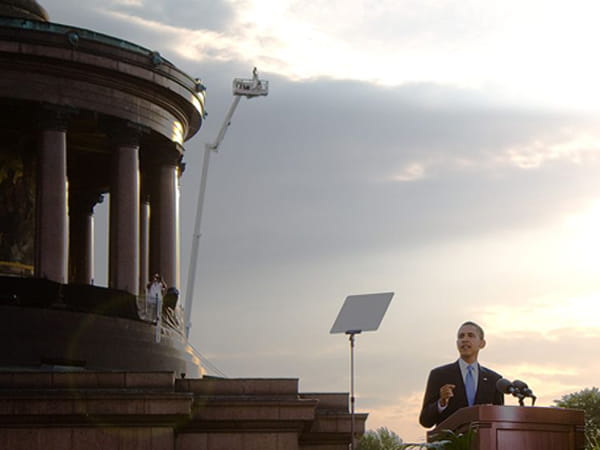Citing Hertzl's diaries, the Post relates the pope's response: "The Jews have not recognized our Lord, therefore we cannot recognize the Jewish people. And so if you come to Palestine and settle your people there, we will be ready with churches and priests to baptize all of you."
Nearly a century later, Pope John Paul II's official recognition of the modern Jewish state represents an astonishing ideological shift from strictly individual salvation to curing the broader social sins of hate and prejudice. Pope John Paul II's reign is studded with similar acts of social reconciliation, including a visit to the Auschwitz death camp and the formation of diplomatic relations with Israel.
But to some Jews, the pope is merely attempting to massage a bleak history of bloodshed. According to a recent Gallup poll, 52 percent of Israelis are cynical about the pope's apology for the church's passive response to Hitler's Final Solution during World War II. For them, the shared hurts of the Holocaust, the Crusades, and the Inquisition are not so easily dismissed. Plainly, the wave of a papal hand does not make a history of bloodshed fade into memory.
Similarly, a core of conservative Catholics feels that the pope's official recognition of Israel substitutes social reconciliation for the teachings of Christ. What matters for them is saving souls through Christ's word, not social amends. The latter, they fear, represents a movement toward the one-world system that's a sign of the apocalypse.
By most measures, though, the pope's visit displays an intellectual self-reflection that moves well beyond religious factionalism. By discarding the "I'm okay, you're not" religious dogma of the past, the pope has taken steps toward preserving societal unity. That is to say, he has offered a rather astonishing example of Christian love.
The pope could render a service of love also by pointing out the important role that Abraham played in the history of Judaism, Christianity, and Islam, the three great monotheistic religions. God said to Abraham (in Genesis 12:2), "I will bless thee, and in thee shall all families of the earth be blessed."
This prophecy has been carried out. But with this blessing came a severe test of faith. God, according to the Old Testament, asked Abraham to kill his son Isaac. And so it seems that the Jews--throughout their 4,000-year history, and especially in the last 2,000 years--have sacrificed again and again for their steadfast fidelity to the faith of Abraham.
These issues are relevant now as we reassess the role of the Catholic Church during the Holocaust. A new book, "Hitler's Pope" by John Cornwell, scrutinizes Pope Pius XII's behavior during the war. The author claims that Pius XII, who is now being considered for sainthood, remained silent in the face of the extermination of the Jews, and that earlier in his career, as papal nuncio in Germany, he signed a pact with Nazi Germany to consolidate Vatican control over the German church, thereby ceding more political power to Adolf Hitler.
Although the Vatican has denied that Pope Pius XII was an anti-Semite, there are still unanswered questions about why a prince of the church did not vociferously object to the massacre of millions of Jews. So John Paul II's trip to Israel presents a unique opportunity for this great pope to transcend the ruinous landscape of religious friction and publicly pay tribute to Abraham and his descendants. It is only through such acts that we can purge our vanity and egocentricity and move beyond distrust, hate, and deceit.

